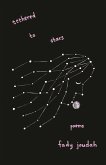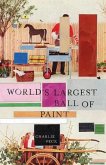We are no longer living in a time when "doctrinal" texts must be composed under a cover of irony or derision; for irony and derision (or alternatively abject orthodoxy) so thoroughly covers our context that there is little irony left to cover the frank utterance of an utterer's truths. Things thus might do well to be stated as they are actually configured. What one must call the Hermetic Tradition has always embodied the spirit of syncresis -- not merely synthesis: it must sport an openness to doctrinal contraries. The active/actual imagination of the initiate was known as the very condition of initiation. The need for both of these disiderata --syncresis and imagination -- has never been more solemnly exigent than now. Another peculiarity of the moment is that the need to disguise an interest in and use of entheogens under the cloak of "New Age" practices with whatever pragmatic or otherwise unexceptional raison d'etre -- has quite dissolved. The creative underwork of non-"technopathocratic" contemporary culture surely grows from the head of a mushroom. Or a weed. Or the psychopharmacologist's alchemy. Or the practices that my generation undertook inspired largely by experiences under entheogenic auspices. (I myself do not speak for this. I was contaminated with yoga and the lust for psychic transformation long before the days of my own devotion to cannabis. I'm just saying.) Indian. Egyptian. Greek. Goddess. Devotionalism. That the poetic cannot extricate itself from myth, as indeed neither can the philosophical, is sooth. There is a configurable complementarity between myth and reason; for the philosophers resort to myth when they are at the end of their wits, and the poets court reason, if gingerly, to hold in yoke the contradictories when the energy the contradictories generate drives them that way. I know I do. As poet and philosopher. Ontological configuration can take as its instrument the poet's voice. The prototypes for such operations have not yet faded utterly: the choice of form or measure, not as constraint but as scrying stone, magic mirror. These means are available along with wikipedia and the occupation of everything by informational simulacra. But the secrets are hidden in plain sight, as ever. The point is, the use, the possibility, (the imaginally possible-to-be-believed) depends not on proof-bringing or dialectic, but the formative power of the utterer, the concrete matter brought, and the intervals of its internal distribution which structure one's configuration. Sufis. Shamans. Because of the very availability of what once were "secret doctrines," the role of the poetic configurator resumes an ancient office: to conjure by giving form; to order by giving form; to transmit by giving form. And form is never other than extension of content sayeth the Elders to whom I continue to pay some obeisance; even when that content is its own conjuration; i.e., when form is the means by which content is summoned, not only the means by which it is ordered. Or precisely there and then. Let the "return to form" among the current generation not be reactive merely, but actual rediscovery. Otherwise . . . -Charles Stein
Hinweis: Dieser Artikel kann nur an eine deutsche Lieferadresse ausgeliefert werden.
Hinweis: Dieser Artikel kann nur an eine deutsche Lieferadresse ausgeliefert werden.


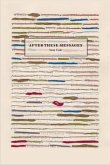
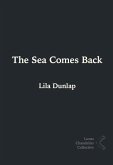
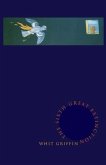
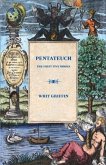
![[...] [...]](https://bilder.buecher.de/produkte/69/69821/69821990m.jpg)
